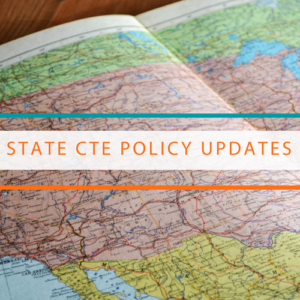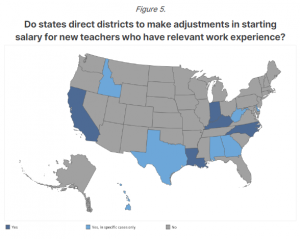 October 7 was National Manufacturing Day but, in Ohio, the celebration lasts the entire month. . Ohio uses this time to raise awareness of the various manufacturing pathways available to learners in the state and inspire those learners to join. Ohio already has significant investments in the manufacturing economy which generates more than $125 billion. However, knowledge of how many different skill sets and jobs are available in the industry is still not widespread. By taking advantage of Manufacturers Month, this post highlights the innovative ways Ohio is uplifting the manufacturing pathway as well as leveraging the support of The Ohio Manufacturers’ Association (OMA), which is bringing awareness to various grants and programs, some of which have been made recently available to Ohio residents.
October 7 was National Manufacturing Day but, in Ohio, the celebration lasts the entire month. . Ohio uses this time to raise awareness of the various manufacturing pathways available to learners in the state and inspire those learners to join. Ohio already has significant investments in the manufacturing economy which generates more than $125 billion. However, knowledge of how many different skill sets and jobs are available in the industry is still not widespread. By taking advantage of Manufacturers Month, this post highlights the innovative ways Ohio is uplifting the manufacturing pathway as well as leveraging the support of The Ohio Manufacturers’ Association (OMA), which is bringing awareness to various grants and programs, some of which have been made recently available to Ohio residents.
 In August, the OMA was named one of the 32 finalists for the “Good Jobs Challenge” grant, a $500 million grant created by the U.S. Economic Development Administration. Over the next three years, around 1,000 of the OMA’s member-employers will benefit from the new funding, which is designed to support local industry partners in their efforts to coordinate, develop and promote workforce solutions in manufacturing. The OMA is currently seeking to enroll 6,000 individuals in one or more training programs that lead to a job offer or upskilling opportunity.
In August, the OMA was named one of the 32 finalists for the “Good Jobs Challenge” grant, a $500 million grant created by the U.S. Economic Development Administration. Over the next three years, around 1,000 of the OMA’s member-employers will benefit from the new funding, which is designed to support local industry partners in their efforts to coordinate, develop and promote workforce solutions in manufacturing. The OMA is currently seeking to enroll 6,000 individuals in one or more training programs that lead to a job offer or upskilling opportunity.
In addition to the work OMA is doing to promote the manufacturing pathway, Ohio offers the TechCred program, an initiative highlighted in Advance CTE’s area technical center research, which is designed to reimburse employers that pay for credentialing of their employees. This program specifically targets technology-focused credentials but has an easy-to-use website for employers to check which credentials are reimbursable and allow them to submit new tech credits for consideration. The program has been active since 2019 and has provided over 48,000 tech-focused credentials to Ohio manufacturing employees.
Ohio has also used legislation to advance manufacturing pathways beyond Manufacturer Month. Last year Senate Bill 166 was enacted that mandates that the Department of Education in partnership with JobsOhio create a program that provides funding to incentivize work-based learning programs offered to learners in a Career Technical Education (CTE) program and allows the creation of virtual and hybrid CTE programs to be offered. These work-based learning programs must be aligned with Ohio state standards but may also be offered remotely or through a hybrid modality to learners enrolled in a CTE program. This legislation is a great step towards enabling learners to access CTE without borders by ensuring that virtual opportunities are quality, equitable and meaningful.
Ohio is doing its part to create a strong manufacturing ecosystem that is accessible to its learners. All states can participate in manufacturing month by following some of their examples by:
- Building and supporting strong industry partnerships;
- Building pathways and removing barriers for necessary industry credentials; and
- Providing innovative and equitable work-based learning opportunities for learners.
Here are some helpful resources:
- Attracting the Next Generation of Students: The Role of Career and Technical Education
- Nondegree Credentials: Paths to the Workforce and Future Education
- Dallas Virtual Internship Toolkit
- Connecting Every Learner: A Framework for States to Increase Access to and Success in Work-Based Learning
- Shifting the Skills Conversation: Employer Attitudes and Outcomes of Career Technical Education
Brice Thomas, Policy Associate


 Congress Remains in Recess Ahead of Midterm Elections
Congress Remains in Recess Ahead of Midterm Elections